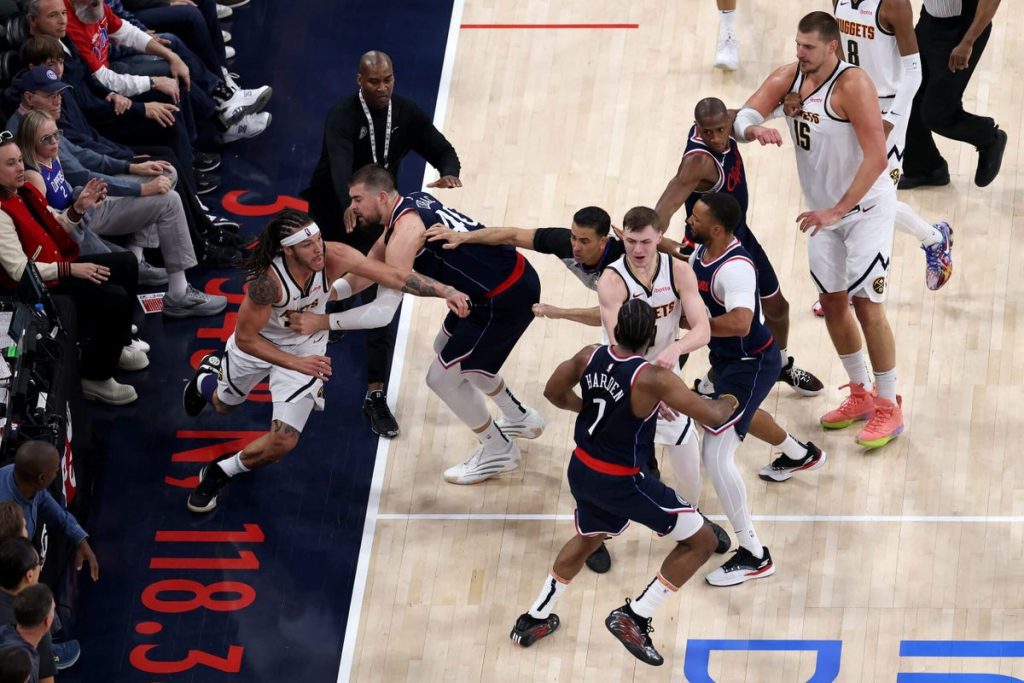By Eric Koreen, Fred Katz, Kelly Iko, and Law Murray
Before Game 2 of the Minnesota Timberwolves’ playoff series against the Los Angeles Lakers, coach Chris Finch candidly discussed the intense physicality in the NBA playoffs. “It feels to me that the game has become overly physical,” he stated. “I’m not criticizing how our series has been officiated, but there’s a noticeable increase in physicality across the board, disrupting the game’s flow. If the Houston-Golden State series doesn’t see any fights, I’d be shocked.”
The style of play has evidently evolved, with several series being contested at significantly slower paces than the league’s slowest team, the Orlando Magic. Recently, the Nuggets and Clippers saw a scuffle that resulted in six technical fouls, while the Pistons-Knicks and Rockets-Warriors series have turned quite contentious, with frequent technicals and flagrant fouls. The Celtics can also recount some interesting moments with the Magic’s defense.
Increased Physicality in the Playoffs
Iko: “Yes, I’ve definitely seen a rise in physicality this year. Many in the NBA are praising the playoffs for this very reason. It’s thrilling to witness athletes competing intensely without direct personal risk; that’s part of the allure of heightened physicality.” However, as the playoffs are underway, sudden shifts in referee calls have surprised many.
Katz: “While I appreciate the fierce competition among world-class athletes, I have mixed feelings. The unexpected nature of this shift in officiating reminds me of last year’s midseason rule changes. The gap in playing styles feels wider than usual, and this discrepancy poses questions about the purpose of the regular season.”
Teams Affected by Physical Play
Iko: “The added physicality benefits teams like the Rockets, known for their defensive versatility, even if they currently face challenges in their series. Conversely, it hinders teams like the Pistons, whose approach to aggressive basketball may not be sustainable, especially with injuries impacting key players.”
Katz: “The Thunder stand to gain the most from this change, as it aligns with their defensive strengths. On the flip side, the Lakers could be adversely affected, as their strategy relies on smaller lineups that benefit from free-throw opportunities, now compromised by a more physical game.”
Challenging Moments in the Playoffs
Iko: “I felt the tension peak during Game 4 of the Rockets-Warriors series, which spiraled out of control. It became more about altercations than basketball.” Meanwhile, Katz pointed to a controversial no-call in the Knicks-Pistons Game 4 that raised questions about officiating consistency throughout the match.
In summary, the ongoing shift toward physicality in the NBA playoffs has sparked extensive discussion regarding its impact on team strategies and the essence of the league. As players and teams adapt, the long-term effects of this newfound physicality will shape how rosters are constructed and games are played in the future.



